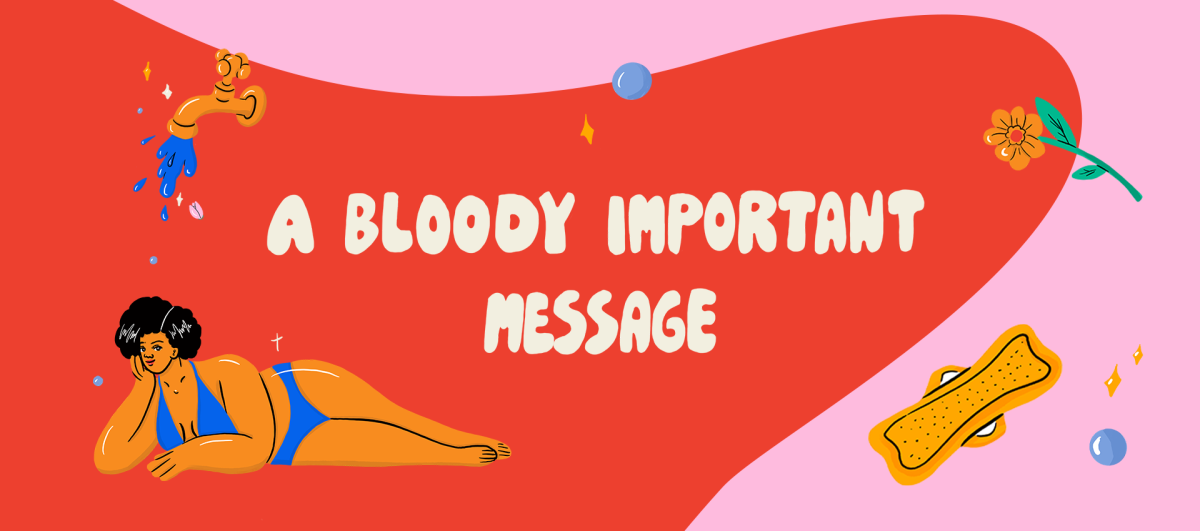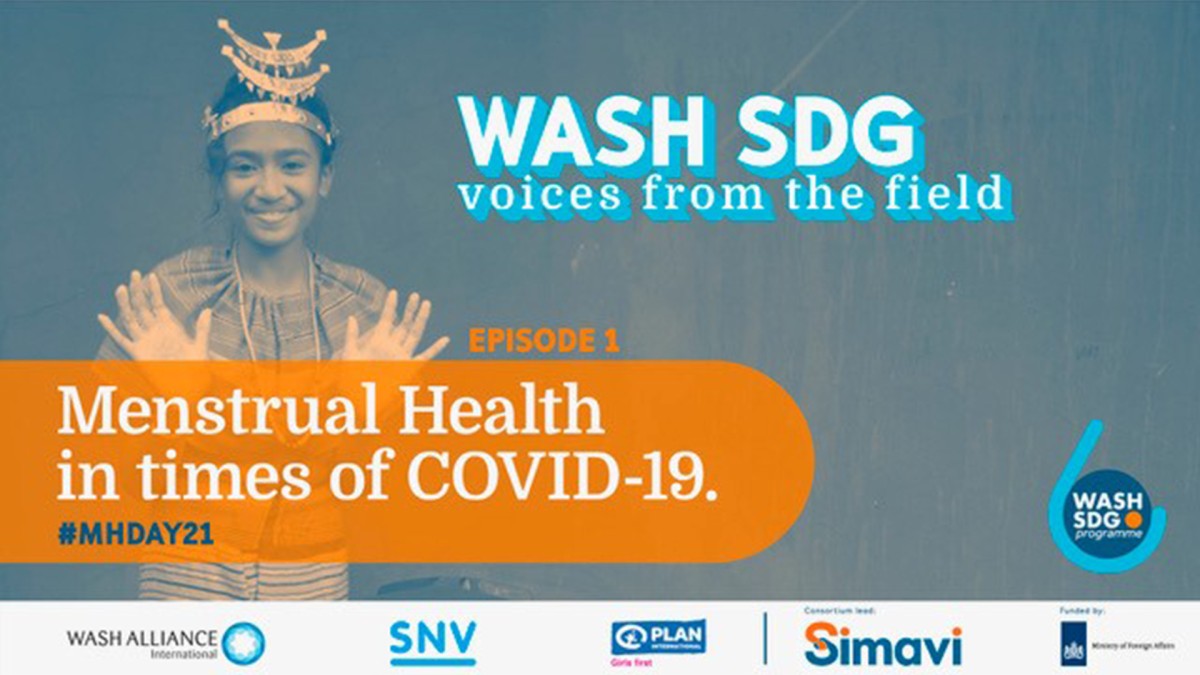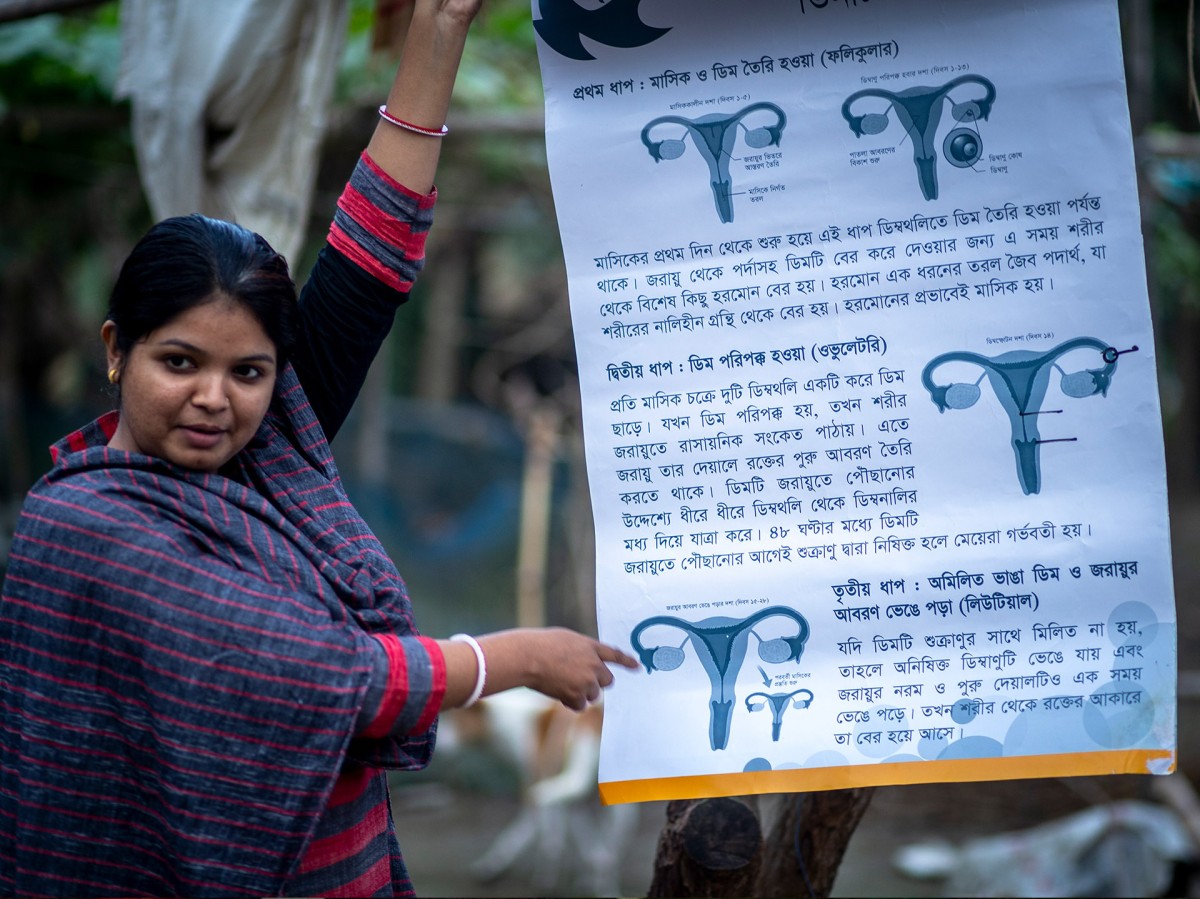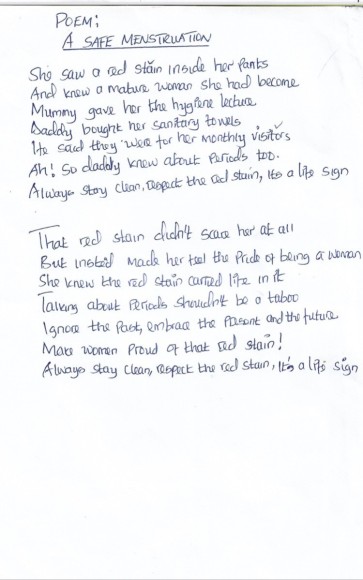Menstrual Hygiene Day: time to put this monthly party on the agenda
Menstruation is still a big cause for inequality worldwide. And that while it's human right to manage your menstruation with enough knowlegde, safety, dignity and without stigma. At Menstrual Hygiene Day (28th of May) we raise awareness for period poverty where breaking the taboo and shame around menstruation is a priority. In the Netherlands and the countries where we work. This page will keep you updated on our work and that of our partners around MHDay2021 (May 28th).

Menstruation = unequal
Menstruation is still a big cause for inequality worldwide:
- Without access to hygiene products or a toilet, menstruation is difficult. Sometimes women and girls stay home from school, work, sports or social activities. That creates unequal opportunities.
- Because of taboos and shame around menstruation, women and girls grow up with the idea that they cannot openly talk about possible problems.
- Moreover: having your period costs money - and not everyone has enough of that.
Even in the Netherlands nearly 9% of women between the ages of 12 and 25 sometimes have little money for sanitary pads or tampons. This must change and therefore, we have a Bloody Important Message to share!
Menstruation hotline in Nepal
In Nepal women and girls face serious taboos concerning menstruation. For instance they are not allowed to touch water during their period. Uncomfortable and unhygienic.
To address this taboo and raise attention for the right to manage ones menstruation dignified and in safety, several initiatives have been taken.
There is for instance a hotline. Anybody from anywhere in Nepal will be able to call the Menstruation Complaint Hotline and complain about what challenges they face or are facing due to menstruation. No separate toilet for women? Or problems with being able to wash your hands in school or work? Call the hotline!
Research: Knowledge, Attitude and Practice Regarding Menstrual Health Among School Students
Menstrual health and hygiene is an important subject that should be discussed and taught to adolescent boys and girls, as knowledge is an essential influencer of their attitude and behaviours towards menstruation. That’s why NFCC with support from Simavi under the WASH SDG WAI Sub-Programme in Nepal conducted a survey in schools in the Banke and Surkhet districts in Nepal to assess the knowledge, attitude, and practice surrounding menstrual health.
Having a period should be a celebration!
In Indonesia Menstrual Hygiene Day is celebrated with an online party. On the guestlist: medical representatives, representative of men who concern in gender equality, influencers and UNICEF. Aim is to normalise the discussion of MHM amongst women, girls, boys and men.
Breaking the taboos in Nepal
Did you know 89% of the women in Nepal face restriction and exclusion during menstruation? Message of this video: let’s take action for change and break the taboos around menstruation.
Affordable MHM products in Uganda
In Bundibugyo and Ntoroko Districts, WASEU in partnership with the Uganda WASH Alliance - UWA and funded by Simavi tailors and women are skilled to make reusable sanitary napkins to keep afloat during these difficult times of Covid-19.
As well as promote the access to menstrual health products as a human right for girls and women in those communities. This initiative is under the WASH-First programme that seeks to scale WASH SDG Efforts.
Time for action and investment in Kenya
What do men know?
There are a lot of misconceptions about menstruation. In the context of Menstrual Hygiene Day (May 28th) we asked men and boys in Tanzania what they know about menstruation. Because we need to talk about menstruation, so that we are able to break taboos and take away misconceptions.
Podcast: Menstrual health in times of COVID-19
For millions of girls and boys worldwide, school is the main source of (reliable) information about menstrual health. What happens when schools close, as they recently did due to COVID-19?
The week of Menstrual Hygiene Day, is a moment to shine a light on these challenges. Due to the COVID-19 restrictions, it’s even harder to educate good menstrual health management and get products.
The WASH SDG Programme interviewed Pema Lhaki and Samuel Kiiza about their work in Nepal and Uganda. Listen to the podcast WASH SDG voices from the field.

Article: investing in menstrual health works, but how do we make it last?
One factor that seems to be overlooked when it comes to menstrual health is sustainability in programming. With sustainability, we mean that program activities continue beyond the duration of the program without the support of the implementing organization.
This is important, as only then will programs make a lasting impact on the lives of the people involved. Moreover, when activities are continued, these can reach new generations and audiences.
Building on the learnings of the successful menstrual health intervention in Bangladesh (RITU Programme), we at Simavi have learned some lessons and in an article on Devex we share challenges that we encountered regarding the program’s sustainability.

Poem: A safe menstruation
In Tanzania we facilitated a poem writing competition at schools. Aim was to break taboos, make menstruation discussable and to give a positive perspective on periods.
Winner was Mary William Mathayo Ilkiding’a Secondary School with her poem 'a safe menstruation':
She saw a red stain inside her pants And knew a mature woman she had become Mummy gave her the hygiene lecture Daddy bought her sanitary towels He said they ‘were for her monthly visitors’ Ah! So daddy knew about periods too. Always stay clean, respect the red stain, it’s a life sign.
That red stain didn’t scare her at all. But instead made her feel the pride of being a woman. She knew the red stain carried life in it. Taking about periods shouldn’t be a taboo. Ignore the past, embrace the present and the future. Make women proud of the red stain! Always stay clean, respect the red stain, it’s a life sign.

Report in Bangladesh.
To understand the context of the MHM situation and relevant interventions in Bangladesh, Share-Net Bangladesh (SNBD) conducted a research study aimed to generate a critical analysis of MHM interventions considering the target groups, geographical presence, disability inclusion, and the method of those interventions.

